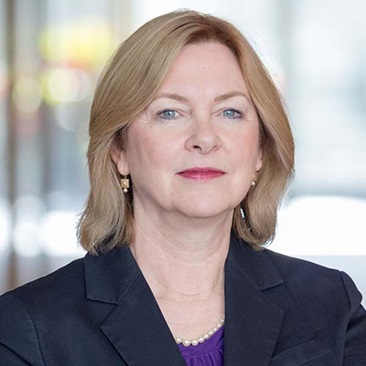full-time faculty teaching and conducting research in political science
of Maxwell faculty conduct research focused outside of the U.S.
graduate students in residence; fewer than 12 admitted each year
Undergraduate Studies
Graduate Studies

I am Maxwell.
Civic engagement is a core value for me. I have always aspired to help the communities I’m from.” Mazaher Kaila, a Maxwell alumna and third-year student at Syracuse University's College of Law, moved with her family from Sudan to Central New York when she was four years old. “I realized that to make meaningful change in society, I needed to understand the systems that power it—government and politics—and that’s insight I would gain by studying political science.”
Mazaher Kaila ’19, L’22
political science, law
The Politics of Engagement with North Korea
Stuart Thorson, Frederick Carrier
Science & Diplomacy, October 2022
We believe that our science engagement efforts were made possible by an understanding, shared with our North Korean academic counterparts, that scientific inquiry is empirical and based on widely accepted research protocols and standards for assessing the validity of scientific truth claims. But since 2016, there has been a global erosion of this shared understanding.
National borders have become more important as globalization has come under attack and scientific claims are increasingly viewed as expressions of political ideology. We are failing to heed the warnings by American diplomat and historian George Kennan not to “become like those with whom we are coping."
Related News
Commentary

Dec 30, 2024
Commentary

Dec 27, 2024
Commentary

Dec 23, 2024
School News

Dec 20, 2024
BaoBao Zhang Joins First Cohort of AI2050 Early Career Fellows
One of only 15 scholars chosen from across the U.S., Zhang will receive up to $200,000 in research funding over the next two years. Zhang will use the funding to partner with the nonprofit, non-partisan Center for New Democratic Processes to test whether public participation in AI governance is increased through the creation of public assemblies, known as “deliberative democracy workshops.”
Baobao Zhang
Assistant Professor, Political Science Department

The Politics of Engagement with North Korea
Stuart Thorson, Frederick Carrier
Science & Diplomacy, October 2022
We believe that our science engagement efforts were made possible by an understanding, shared with our North Korean academic counterparts, that scientific inquiry is empirical and based on widely accepted research protocols and standards for assessing the validity of scientific truth claims. But since 2016, there has been a global erosion of this shared understanding.
National borders have become more important as globalization has come under attack and scientific claims are increasingly viewed as expressions of political ideology. We are failing to heed the warnings by American diplomat and historian George Kennan not to “become like those with whom we are coping."
Related News
Commentary

Dec 30, 2024
Commentary

Dec 27, 2024
Commentary

Dec 23, 2024
School News

Dec 20, 2024

